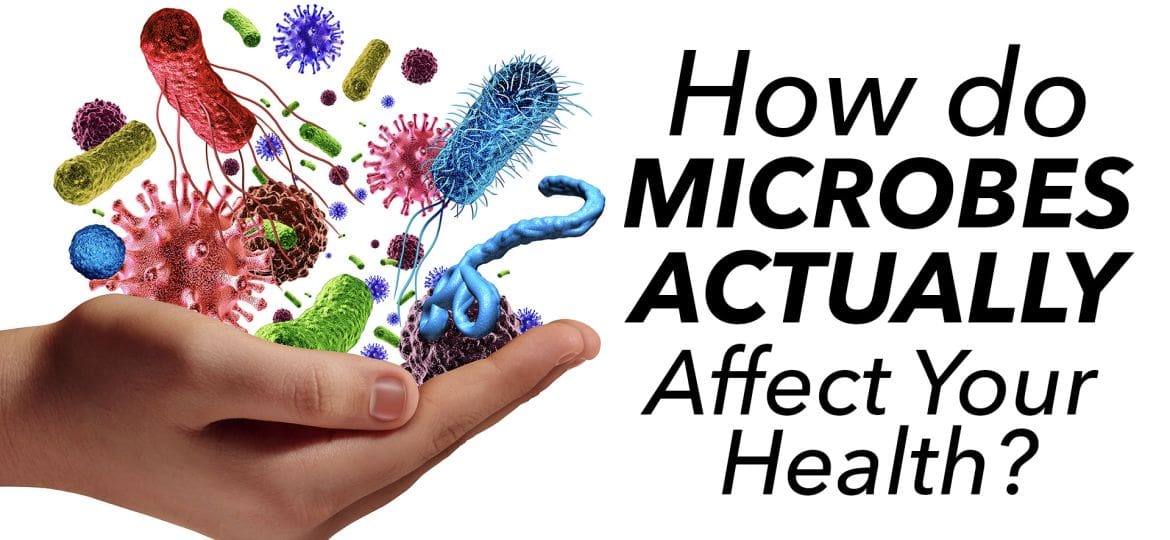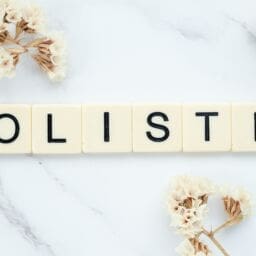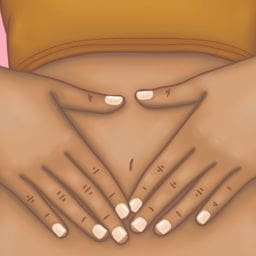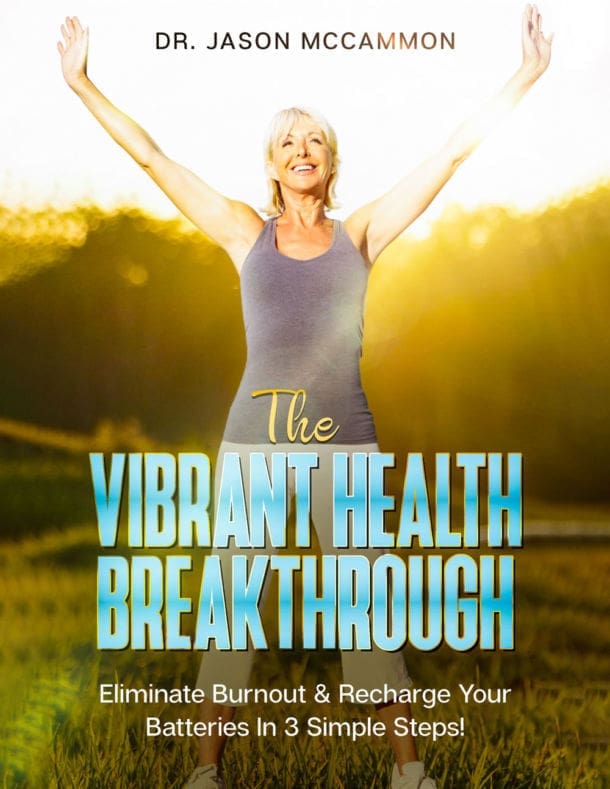
Let’s talk about microbes. It’s so, so important because we have this war against microbes generally in the western nations, in America, where we think if we just kill the microbe we’re going to be good to go. This is the wrong approach. If you just bomb the microbes in your body, then just take antiparasitics to heal, that’s not going to work. So let’s talk about what the truth is about microbes.
Introduction to Microbes and Our Body
Let’s define microbes. Microbes, including viruses, bacteria, nematodes, protozoa, and fungi, are often misunderstood. While some can cause diseases, many play a crucial role in our body’s ecosystem. So what’s going on with these guys? We’ve been in coexistence with all these microbes for all of human existence, living alongside these synergistically for a long, long time. Now all of a sudden, why are we getting into this anti-germ idea? Yes, some pathogens are nasty, but more important than their potential pathogenesis is what’s called the terrain. So we’re going to get into that in just a minute, but I want you to understand that we are a big petri dish. We’re mostly water-based, we’re warm, we’ve got dark crevices and we’ve got a food supply coming in, and these microbes are going to live in us. So I want you to get used to the fact that you are a giant petri dish, with a head and a mouth and a personality, but that’s what you are, and you’re outnumbered. We have 100 trillion cells in the body, but we have several trillions of these microbes. You’re outnumbered. So think about it from a DNA perspective, there’s more foreign DNA in your body than your DNA.
You’re going to have these organisms in your body and there’s not much you can do about it in terms of them coming into your system. Let’s take COVID-19, for example, SARS-CoV-2, the thing that causes the actual illness, it’s worldwide, everybody’s going to have some of that in their body. So people may say, “I never got sick with that.” or “I didn’t get it for a couple of years, and then I got it.” The truth is, we’ve all had this, for quite a long time, many years, whether you get sick or not with symptoms or not, does not necessarily correlate with if you have the microbe in your body. Some people have staff in their body or strep. I test for this as a functional doctor all the time. They have it in their body, sometimes for years, it just hasn’t been a problem. There hasn’t been an actual infection, a clinical infection, but yet you still have it. So don’t think, just because you don’t have any symptoms for a microbial overgrowth, you don’t have it. Remember, we’re carrying all these different categories of microorganisms in our body all the time.
I’m going to go a step further and tell you about parasites. You cannot eat clean enough food, no matter if it’s organic, sustainably raised, you wash it well, or you put vinegar in warm water, and add baking soda. You can do all that if you want. Guess what? You’re still going to get some parasites in your body, whether you like it or not. It’s coming in, no matter if you eat vegan, if you’re a carnivore, it doesn’t matter. It’s coming in.
The idea is that we want a Terrain in our body such that they don’t set up shop. That’s the key. And what I’m seeing clinically with patients is that we’re ingesting the microbes, but one issue of many, is they have so little stomach acid, they’re not able to break down the microbe to a small enough level that then your immune system can handle the rest of it, and then it becomes transit, which means it comes in and goes right out the backside. Low stomach acid, and poor enzymes, now you have undigested food going to the bowel and feeding a colony or family of microorganisms that are setting up shop.. That’s what we’re creating for these microbes. They are allowed to come in and pass through and keep on rolling, but they don’t live there.
The key is your internal terrain. Can it break them down into a small enough quantity that they don’t set up a huge infectious disease? They’re going to come and go, it’s just the way life is. You’re not going to beat them. You just have to outsmart them, and that’s what we do in functional medicine.
The Germ vs. Terrain Approach
Another important related topic is the germ versus terrain approach. There is a place for conventional medicine. If have sepsis you can die in minutes, if not under an hour, if you get a bloodborne infection. You need antibiotics, you need them now. That’s important. That’s where conventional medicine shines. Unfortunately, they are using the same weapons they use for an acute infection, like when you’re sick with sepsis, they use those same drugs for chronic infection. It doesn’t work like that. It just destroys your ecosystem, and your gut microbes, which are already probably not doing good. It destroys them even more, and now we’re even more behind the eightball, and more infectious chronic disease comes up. I see this a lot with my lyme patients that come in. One patient was on antibiotics, months and months of antibiotics, and they still, didn’t do a darn thing for her. Some patients get even sicker. You can’t just keep beating on the germ, you have to look at the terrain.
Clinical studies are showing when certain microbes come into our body, they change their function based on our environment, and you know what number one is? Mental health. What you think creates an electrical current in your brain, that creates a magnetic field in your body, and that magnetic field can dramatically alter what microbes do in your body. So that’s why you can have the same microbe go into one person’s body, and they’re fine, and then the same microbe go into another person’s body, and it makes them sick. That’s why, it’s the terrain. The internal ecosystem, starting with your mental health and going, into the gut and other parts of your body, that determines if we’re going to have a virulent, pathogenic microbe. Because I’m telling you, even healthy stuff, candida yeast, for example. There are over 40 strands of yeast endemic to the human body. Candida is just one of them, but we need candida. It balances other microbes, other parasites, and other bacteria. The problem is, if we are too friendly to the candida and we are creating an environment that it loves, it’s going to overgrow into a fungal infection. It’s about balance.
Microbes in Birth and Early Childhood
One of the biggest things that I’ve learned studying this over all these years is your gestational route as a baby when you’re in utero, and then birthing colonization. So if you can try to make sure your environment is healthy before you become pregnant, when you become pregnant, that’ll help your baby so much more, and give them a boost in life. If not they’re going to be cultured with these strains that may cause a problem. I’ve traced this in people now, I’m working with that are in their 40s, 50s, and 60s, back to their birthing experience, believe it or not. Another big one is birthing through vaginal birth, where we’re going to get culture with typically lots of good bacteria and organisms, versus a C-section. I’m not vilifying, I’m not judging you if you had to have a C-section, I want you to be safe, absolutely, but if we can do it naturally, let’s do that because there are so many reasons for that. I will make a separate post on birthing later. One of the reasons is these microbes that are implanted and colonized into this baby, a brand new life, put cultures in that baby. Research shows that we have this endemic culture that we get colonized in our gut, and in our body, which is mostly attained, obtained between 0 and 2 years of age. Another reason is there’s a lot of credible research that shows that once we get beyond two, it’s tough, if impossible, to shift that microbial environment. So 0 to 2 is so important, and if you’ve missed that window, in your case, obviously not your fault, but we can help the next generation have a better environment if you are looking to have children.
Another big one is breastfeeding. I’m not going to say, “Only breastfeed if you don’t you’re a bad mom.” Not at all. You got to do what you got to do. I get it. There are so many different situations. But if we can, at least breastfeed for at least a few months, it will tremendously help the infant’s internal culture.
Early trauma is a big factor as well. Anywhere between 0 and 7 years of age, and we’re in a traumatic environment. Now, trauma doesn’t have to be physical abuse. Just witnessing trauma, hearing really strong language with a lot of anger in their voice, witnessing things being thrown. You won’t see a baby always react to that when it’s way over across the room, but that big loud noise that they’re hearing, that’s shocking to their system. That’s traumatic for them, and they’re going to have to create coping mechanisms to then survive their environment. That trauma, is going to change your nervous system, and that’s going to change your microbes, and how they integrate into your body.
So in conclusion you have to have a good functional medicine approach to understand what microbes are doing in your body. Are some imbalanced? What we call dysbiosis. Most likely, yes, if you have a chronic illness. This is so complex, that you’ve got to work with a professional. You do, to understand all the nuances. Just taking a bottle of probiotics is not going to cut it. It’s not going to help you. Sometimes it can make you even sicker because it’s battling other cultures that are already trying to survive themselves. There’s a lot that can be done to help improve your terrain.
Reach out if you need help with understanding the microbes in your body.
Be well,
Dr. Jason
Board certified naturopathic & functional medicine doctor
















